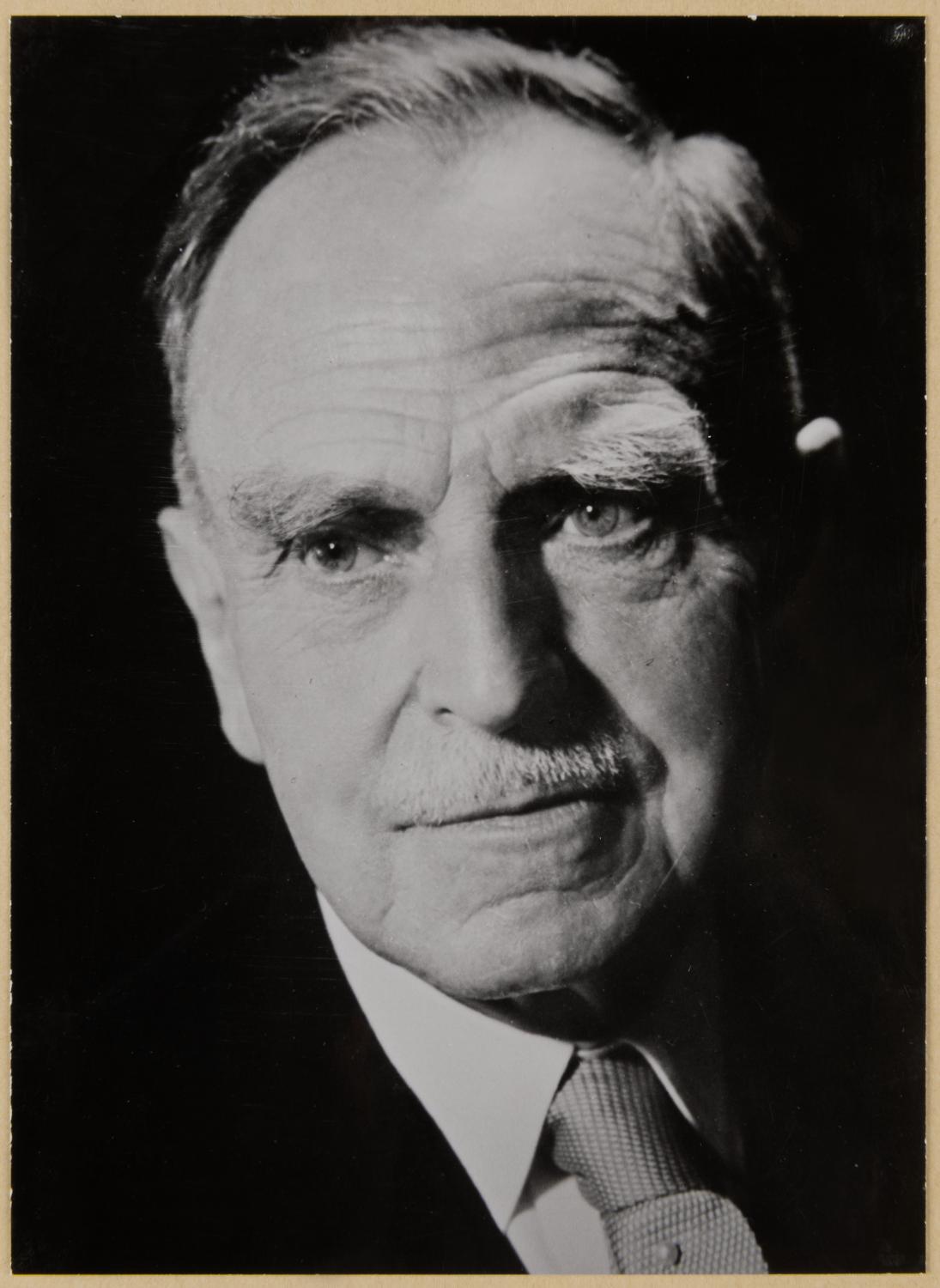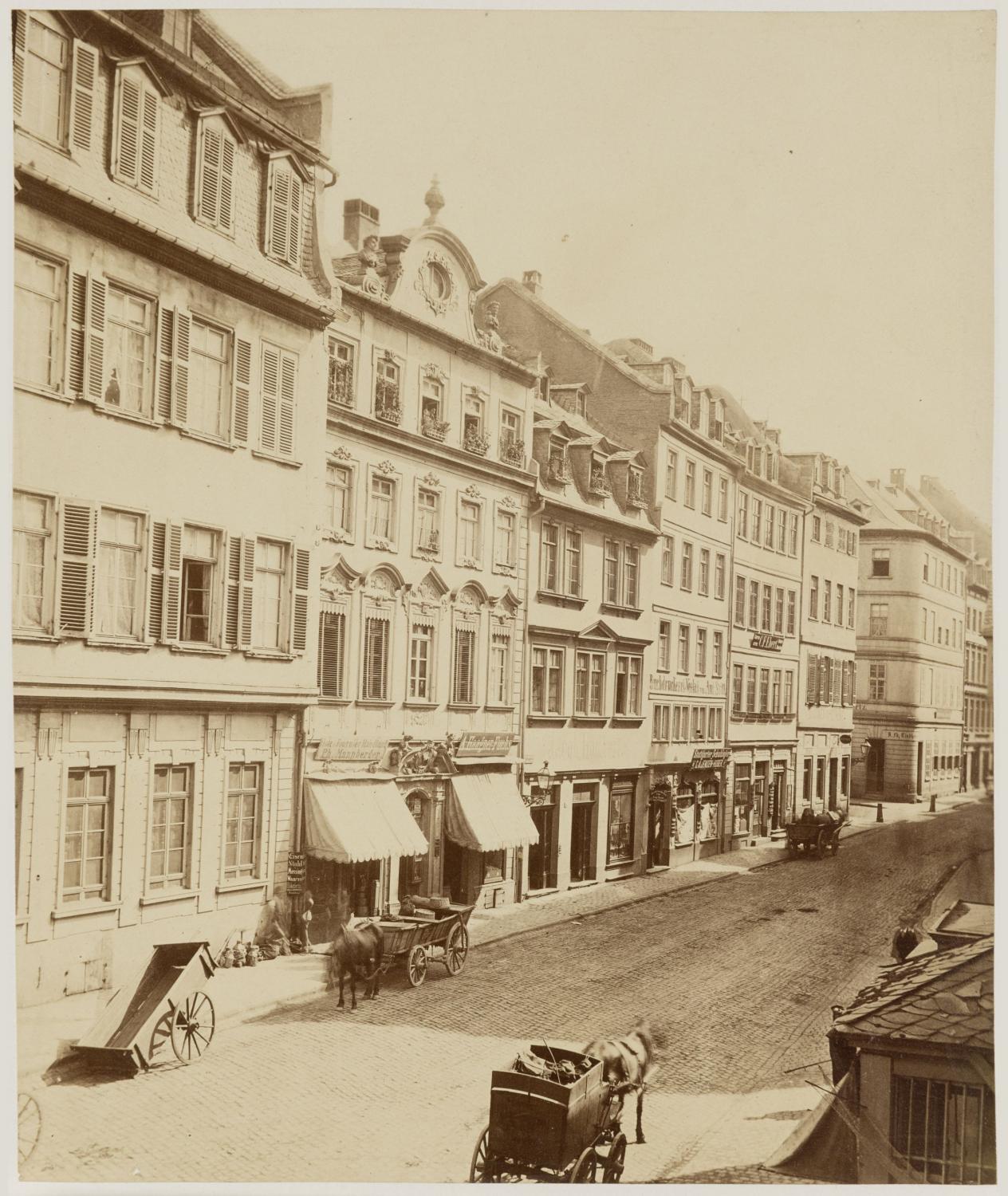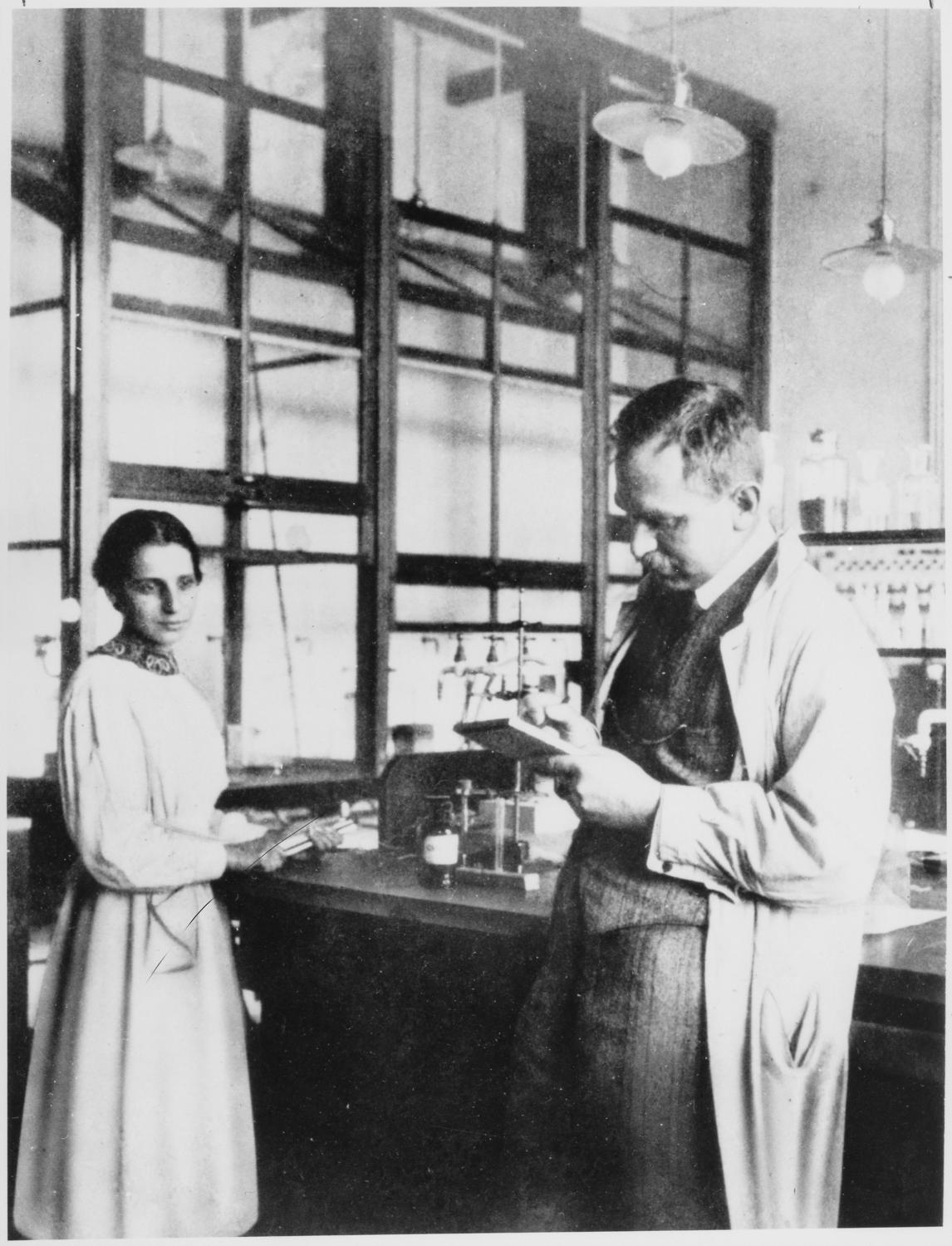* Life * Research * Experiments * Media < back
What was special about Otto Hahn's research?

In 1938 the chemist Otto Hahn succeeded in splitting the atomic nucleus of the radioactive metal uranium for the first time. Atomic nuclei are composed of so-called protons and neutrons. Radioactivity means that these nuclei contain a lot more neutrons than protons, which holds them together with less force than the atomic nuclei of other elements. Hahn irradiated these unstable nuclei with additional neutrons. Through the impact of a neutron, one nucleus was divided into two nuclei and further neutrons were released, which in turn split more nuclei, and so on. This process, called a chain reaction, releases the great force holding the cores of atoms together.
Building on Otto Hahn's findings, research continued feverishly in different countries. If the splitting processes that Hahn had “accidentally” recognized could be done in a controlled manner, an enormous amount of energy could be “gained” as nuclear power for peaceful purposes, or as atomic bombs for war purposes.
The course of Otto Hahn's life

Otto Hahn was born in Frankfurt on 8 March 1879 and grew up there with two brothers. His father was a master glazier with his own glass workshop. Otto graduated in 1897 from Klinger High School in Frankfurt, then studied chemistry and mineralogy in Marburg, as well as physics and philosophy as minor subjects. He finished his studies and doctoral thesis in 1901, and after military service worked from 1904 in research institutes at various universities in London, Montreal and Berlin. He researched and experimented in well-equipped laboratories with renowned chemists on the radioactivity of elements. That means he investigated how the atomic nuclei of certain elements change in their composition, thus changing the elements themselves and their properties.
Hahn had actually learned little about radioactivity as a student, but during his research became quickly successful in this field. His long collaboration with the physicist Lise Meitner began in 1907; through their experiments the two gained completely new insights in atomic research. Hahn was employed from 1912 at the newly founded Kaiser Wilhelm Institute for Chemistry in Berlin-Dahlem, and was its director from 1928 on.

During the National Socialist regime Meitner, as a Jewish woman, was forced to flee to Stockholm in 1938. At the Berlin University, Hahn had already lost many of his Jewish colleagues, who had been fired, and finally gave up his professorship there in protest. Together with his spouse Edith Hahn, whom he had married in 1913, Hahn supported many Jewish friends who had to hide or leave the country, and remained in close contact with Lise Meitner. The decisive experiment with his colleague Fritz Strassmann was made on 17 December 1938. Afterwards, together with Meitner, he realized that he must have succeeded in splitting the atomic nuclei of the element uranium. For this "discovery" Otto Hahn received the Nobel Prize in Chemistry in 1944, which could only be presented to him after the end of the Second World War. Like other German nuclear researchers, Hahn was detained in England in the spring of 1945. Their aim was to find out whether the scientists had worked for the National Socialists to develop the atomic bomb. In the same year Hahn was horrified to see the destructive power of his research, when the American military dropped atomic bombs on the Japanese cities of Hiroshima and Nagasaki and several hundred thousand people died.

For the rest of his life, and as president of the Max Planck Society for the Advancement of Science, Otto Hahn warned against the proliferation and development of nuclear weapons and repeatedly called for their ban. From 1948-1960 he headed the successor organization of the Kaiser Wilhelm Institute, whose director he had been until 1945. In addition to membership in numerous scientific academies and associations, Hahn was on the board of the German Atomic Energy Commission for the peaceful use of atomic energy since 1956. Otto Hahn received numerous awards, and in 1959 the honorary citizenship of the city of Frankfurt. He died at the age of 89 on 28 July 1968 in Göttingen.
* Life * Research * Experiments * Media < back